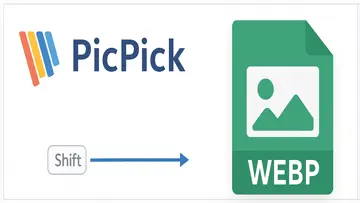Bibgrep: Simplifying Bibliographic Searches with Ease
Bibgrep offers a powerful and intuitive way to search through bibliographic data, making it an essential tool for researchers and academics alike.
bibgrep is a powerful software application developed by Guillaume Marceau that is designed to efficiently search and manage bibliographic data. This tool is especially helpful for researchers, academics, and students who need to organize and retrieve information from vast collections of academic references.
One of the key features of bibgrep is its lightning-fast search capabilities. Users can easily search through their entire library of references using specific keywords, authors, titles, or publication years, allowing for quick and accurate results.
With bibgrep, users can also import and export bibliographic data in various formats such as BibTeX, EndNote, or RIS, making it easy to integrate with other reference management tools or share data with colleagues.
This software application also offers customizable search options, allowing users to apply filters and refine their search queries to find the most relevant references for their work. Additionally, bibgrep provides users with the ability to create tags and categories for better organization and retrieval of information.
Furthermore, bibgrep has a user-friendly interface that is intuitive and easy to navigate, making it suitable for users of all levels of technical expertise. The sleek design and simple layout enhance the overall user experience and ensure a seamless workflow.
bibgrep by Guillaume Marceau is a reliable and efficient tool for managing bibliographic data, streamlining the research process, and enhancing productivity for individuals and teams alike.
Overview
bibgrep is a Open Source software in the category System Utilities developed by Guillaume Marceau.
The latest version of bibgrep is 0.51, released on 02/18/2008. It was initially added to our database on 08/24/2007.
bibgrep runs on the following operating systems: Windows.
bibgrep has not been rated by our users yet.
Pros
- Fast and efficient for searching through large text files
- Supports various regular expression patterns for advanced search capabilities
- Easy to use and navigate with simple command line interface
Cons
- Limited to command-line interface, may not be ideal for users who prefer graphical user interfaces
- Requires some knowledge of regular expressions to fully utilize its search capabilities
- Limited features compared to more robust text editing software
FAQ
What is bibgrep?
bibgrep is a command line tool developed by Guillaume Marceau that allows users to search through BibTeX files.
How do I install bibgrep?
You can install bibgrep by following the installation instructions provided in the README file of the project's GitHub repository.
What operating systems does bibgrep support?
bibgrep is designed to be compatible with Linux, macOS, and other Unix-like systems.
Can I use bibgrep on Windows?
While bibgrep is primarily built for Unix-like systems, you may be able to use it on Windows using third-party tools such as Cygwin or WSL (Windows Subsystem for Linux).
How do I use bibgrep to search for specific entries?
To search for specific entries, you can invoke bibgrep with the appropriate search query and specify the path to your BibTeX file. For example: 'bibgrep -i author:Smith bibliography.bib'
What are some commonly used search options in bibgrep?
Some commonly used search options include searching by author, title, year, or any other field defined in your BibTeX entries. You can find more details about these options in the bibgrep documentation.
Can I combine multiple search criteria in bibgrep?
Yes, you can combine multiple search criteria using logical operators such as 'AND' and 'OR' to refine your search in bibgrep. Refer to the documentation for more information on how to construct complex queries.
How do I exclude certain fields from the search in bibgrep?
You can exclude certain fields from the search by using the 'exclude' or 'ex' operator followed by the field name. For example: 'bibgrep -i -ex year:2010 bibliography.bib' will exclude entries with the 'year' field set to 2010.
Can I use regular expressions in bibgrep search queries?
Yes, you can use regular expressions as part of your search queries in bibgrep by using the '-r' option. This allows for more flexible and powerful searching capabilities.
How can I contribute to bibgrep's development?
If you would like to contribute to bibgrep's development, you can fork the project on GitHub, make your desired changes, and submit a pull request. Be sure to follow the contribution guidelines outlined in the project's repository.

David Fischer
I am a technology writer for UpdateStar, covering software, security, and privacy as well as research and innovation in information security. I worked as an editor for German computer magazines for more than a decade before joining the UpdateStar team. With over a decade of editorial experience in the tech industry, I bring a wealth of knowledge and expertise to my current role at UpdateStar. At UpdateStar, I focus on the critical areas of software, security, and privacy, ensuring our readers stay informed about the latest developments and best practices.
Latest Reviews by David Fischer
Latest Reviews
|
|
Geekbench
Geekbench: Unleash the Power of Your Device! |
|
|
Skat
Experience the Classic Card Game with Skat |
|
|
DU Meter
Monitor and manage your internet usage with DU Meter! |
|
|
PhotoSort
Effortlessly organize your photo library with PhotoSort! |
|
|
Krita
Revolutionize your digital art with Krita's powerful tools and unique features! |
|
|
AVGAntiTrack
Protect your online privacy with AVGAntiTrack by AVG Technologies |
|
|
UpdateStar Premium Edition
Keeping Your Software Updated Has Never Been Easier with UpdateStar Premium Edition! |
|
|
Microsoft Visual C++ 2015 Redistributable Package
Boost your system performance with Microsoft Visual C++ 2015 Redistributable Package! |
|
|
Microsoft Edge
A New Standard in Web Browsing |
|
|
Google Chrome
Fast and Versatile Web Browser |
|
|
Microsoft Visual C++ 2010 Redistributable
Essential Component for Running Visual C++ Applications |
|
|
Microsoft Update Health Tools
Microsoft Update Health Tools: Ensure Your System is Always Up-to-Date! |





